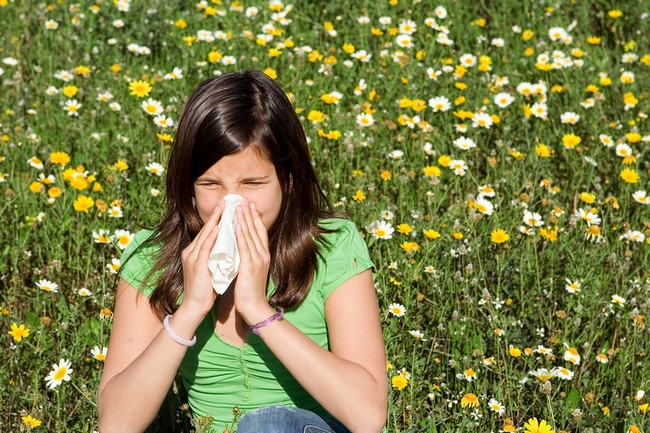- Make It Yourself Lavender Heart-Shaped Bath Bombs!
- 20 Things You Never Knew About “Down There”
- 12 Best Foods For Those Suffering From Arthritis Pain
- 12 Personal Hygiene Mistakes Almost Everyone Makes (Mom Never Told You About #4!)
- 15 Medicinal Plants And Herbs From The Cherokee People
- 12 Mind-Blowing Benefits Of Drinking Coconut Water During Pregnancy
- 12 Outstanding Winter Foods That Won’t Fatten You Up Like A Christmas Turkey
12 Anti-Allergy Superfoods to the Rescue (You Won’t Believe #8)

Photo credit: bigstock.com
One of the top 10 reasons people visit their doctor is due to allergies. It has been estimated that as many as 50 million Americans have some type of allergy.
Any substance can be an allergen. If it triggers an allergic reaction in the body, then it is considered to be an allergen. Some of the most common allergies are peanuts, dust mites, insect stings, mold, latex, pet dander, and certain medications, such as aspirin.
Allergic reactions can affect almost any part of the body, but the most common symptoms affect the skin, the stomach, ears, eyes, nose, throat, sinuses, and lungs. Symptoms such as hives, runny nose, swollen throat, wheezing, rashes, swelling, and watery or itchy eyes are common. Symptoms can be mild to severe and depend on the allergen and the amount of exposure.
Many people rely on anti-histamines for relief, but did you know that there are numerous ways you can treat allergies beforehand to prevent them from occurring or to lessen the severity of the symptoms? It’s true!
If you or someone you love suffers from allergies, keep on reading! Find out the top 12 foods that can help you deal with allergies.
1. Tea
One important compound that is well known for fighting allergies is quercetin. Quercetin has powerful antioxidant, anti-histamine, and anti-inflammatory compounds. Research has shown that diets high in quercetin lowers blood pressure, the risk of developing heart disease, as well as several cancers. These are all great “side effects” that anyone with allergies can appreciate. Diets high in quercetin have improved lung function as well as lower levels of allergic reactions. Black, green, and white teas all have high levels of quercetin. Try switching out some of your coffee or juice for several cups of your favorite tea. Other good sources of quercetin are cabbage, cauliflower, and berries.
2. Turmeric
This spice can be a powerful weapon in your fight to prevent allergies. Turmeric is a potent antioxidant and anti-inflammatory that not only fights allergies but works as a decongestant to help relieve one of the most annoying symptoms of an allergic reaction. Simply mix 1 teaspoon of turmeric powder in a glass of warm milk and drink daily. You can also add turmeric to your cooking for some extra kick in your anti-allergy diet.
3. Flax Seeds
You can help prevent allergic reactions by consuming more flax seeds, which contain both omega-3 fatty acids and selenium. The omega-3 can reduce inflammation while the selenium helps your immune system function correctly. Selenium is very important for your immune system and it also increases the power of antioxidants in the body. Flax seeds need to be ground in order to release their allergy fighting compounds. If you can only find whole flax seeds, no problem, simply grind them in your coffee bean or spice grinder or in a blender. Mix one tablespoon of ground flax seeds to a glass of milk or warm water and drink one glass each day. You can also add ground flax seeds to your yogurt, smoothie, cereal, oatmeal, or even salads.
Continue to Page 2
































